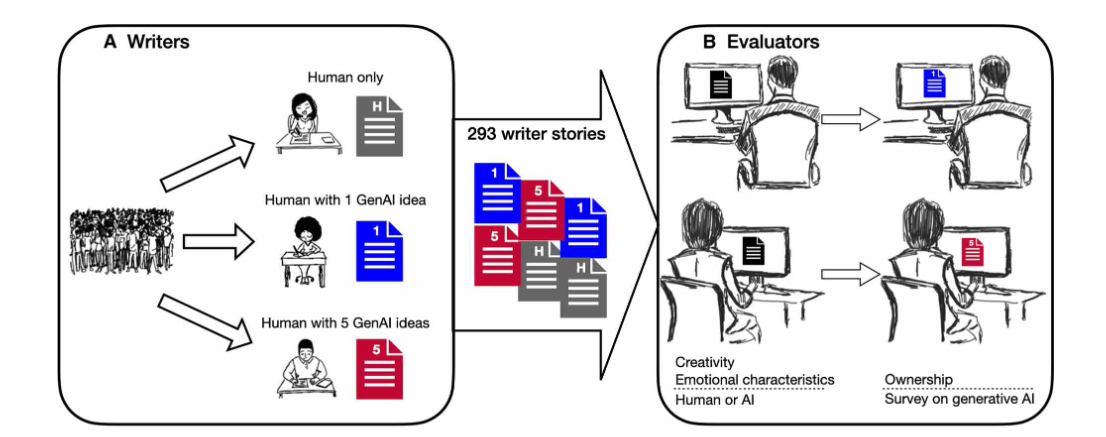
UCL School of Management Assistant Professor Anil Doshi and Professor Oliver Hauser from the University of Exeter have co-authored a significant research paper on generative artificial intelligence (AI) and its impact on creativity. Their research explores the significance of generative AI in human creativity and its impact on humanity as a collective.
“Creativity is core to being human.” The rapid development of generative AI through the power of large language models holds the promise of making every person more creative. However, what will be the effect on human collective novelty when idea generation is no longer necessary?
The study shows that humans with access to generative AI when asked to write a short story demonstrated an increase in average novelty and usefulness compared to those without it, which are frequent benchmarks of human creativity. The generative AI helped “professionalise” the stories beyond the writers’ predicted “typical capabilities,” resulting in stories that are well-written and more enjoyable for the evaluators in the study. Interestingly but unsurprisingly, less creative writers experienced greater improvements in their stories, with increases of 10–11% in creativity and 22–26% in how enjoyable and well-written the stories were.
However, the study found that generative AI is not all good news. The study’s overall finding suggests that although less creative individuals benefit from using generative AI, the stories produced overall from generative AI inspirations would become less unique over time, thus decreasing humanity’s collective novelty and uniqueness in storytelling.
In the study Doshi and Hauser states:
“Our results suggest that despite the enhancement effect that generative AI had on individual creativity, there may be a cautionary note if generative AI were adopted more widely for creative tasks”
To learn more in-depth about the study: https://www.science.org/doi/10.1126/sciadv.adn5290
Assistant Professor Anil Doshi: https://www.mgmt.ucl.ac.uk/people/anildoshi